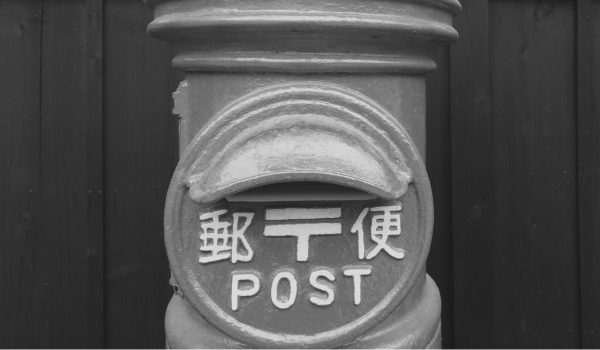In Japanese, the verbs 通る (とおる) and 通り過ぎる (とおりすぎる) might seem similar at first glance, but they have distinct meanings and uses. Learners often mix them up, leading to awkward or confusing sentences. Let’s break down their meanings, explore practical examples, and highlight the common mistakes you should avoid.
1: 通る (とおる)
Meaning:
通る (とおる) means “to pass through” or “to go through.” It implies moving through a space, sometimes involving a procedure (like passing through a ticket gate), but not always.
Examples:
- トンネルを通る。(トンネルをとおる。)
ー To go through a tunnel. - 駅の改札を通る。(えきの かいさつを とおる。)
ー To pass through the ticket gate at the station. - 税関を通りました。(ぜいかんを とおりました。)
ー I went through customs. - 神社の鳥居を通ってお参りに行きました。(じんじゃの とりいを とおって おまいりに いきました。)
ー I passed through the Torii gate at the shrine and went to pay my respects. - バスターミナルに着いたら、駅の中を通って、2番出口から駅裏に出て下さい。(ばすたーみなるに ついたら、えきのなかを とおって、にばんでぐちから えきうらに でてください。)
ー When you arrive at the bus terminal, go through the station, and exit through Exit 2 to get to the back of the station. - この道を通るのに、通行料を払わないといけません。(このみちを とおるのに、つうこうりょうを はらわないといけません。)
ー You have to pay a toll to use this road.
2: 通り過ぎる (とおりすぎる)
Meaning:
通り過ぎる (とおりすぎる) means “to go past,” “to pass,” or “to pass by.” It implies that you move past a place or object, sometimes accidentally or without stopping.
Examples:
- ポストを通り過ぎちゃったから、少し戻ってください。(ぽすとを とおりすぎちゃったから、すこし もどってください。)
ー I went past the post box, so let’s go back a little. - 目の前を鹿が通り過ぎた。(めのまえを しかが とおりすぎた。)
ー A deer passed right in front of me. - 特急電車が通り過ぎた。(とっきゅうでんしゃが とおりすぎた。)
ー The express train went past. - コンビニに行きたかったのに、運転に集中していて通り過ぎてしまった。(こんびにに いきたかったのに、うんてんに しゅうちゅうしていて とおりすぎてしまった。)
ー I wanted to go to the convenience store, but I was focused on driving and passed it by. - 今、店の前を通り過ぎた人って、有名人?(いま、みせのまえを とおりすぎたひとって、ゆうめいじん?)
ー Was the person who just passed by the shop a celebrity?
Common Mistakes
- トンネルを通りました。(とんねるを とおりました。)
ー I went through the tunnel. ✅
トンネルを通り過ぎました。(とんねるを とおりすぎました。)
ー I passed the tunnel. ❌
(This sounds like you passed by the tunnel without entering it, which is likely not what you mean!) - 手荷物検査ゲートを通りました。(てにもつけんさ げーとを とおりました。)
ー I went through the security check gate. ✅
手荷物検査ゲートを通り過ぎました。(てにもつけんさ げーとを とおりすぎました。)
ー I passed by the security check gate. ❌
(This implies you didn’t go through the check and missed it.) - このバスは皇居を通りますか?(このばすは こうきょを とおりますか?)
ー Does this bus go through the Imperial Palace area? ✅
このバスは皇居を通り過ぎますか?(このばすは こうきょを とおりすぎますか?)
ー Does this bus pass by the Imperial Palace? ❌
(This sounds unnatural, as buses don’t just “pass by” key stops—they usually either go through or stop there.) - 東京駅を通り過ぎてしまいました。(とうきょうえきを とおりすぎてしまいました。)
ー I passed by Tokyo Station. ✅ (You missed your stop.)
東京駅を通ってしまいました。(とうきょうえきを とおってしまいました。)
ー I went through Tokyo Station. ❌
(This sounds strange unless you mean you went through the station without stopping.)
3: Other Useful Expressions
寄る (よる)
Meaning: to stop by
Examples:
- ちょっとコンビニに寄っても良い?(ちょっと こんびにに よってもいい?)
ー Can we stop by the convenience store for a moment? - 郵便局に寄ってから行きます。(ゆうびんきょくに よってから いきます。)
ー I’ll stop by the post office before going. - ちょっと顔が見たくなって、寄ってみたんだ。(ちょっと かおが みたくなって、よってみたんだ。)
ー I just felt like seeing your face, so I stopped by.
立ち寄る (たちよる)
Meaning: to drop by (often without a plan)
Examples:
- 古本屋を見つけて立ち寄った。(ふるほんやを みつけて たちよった。)
ー I found a second-hand bookstore and dropped by. - 仕事で近くまで来たから立ち寄りました。(しごとで ちかくまで きたから たちよりました。)
ー I was in the area for work, so I stopped by. - たまたま立ち寄ったリサイクルショップでずっと探していたレコードを見つけたんだ。(たまたまたちよった りさいくるしょっぷで ずっと さがしていた れこーどを みつけたんだ。)
ー I happened to stop by a thrift shop and found the record I had been looking for.
Summary :
- 通る (とおる) : to go through or pass through a place, sometimes requiring a procedure.
- 通り過ぎる (とおりすぎる) : to pass by something, often unintentionally.
- 寄る (よる) : to stop by a place.
- 立ち寄る (たちよる) : to drop by, usually without planning.
